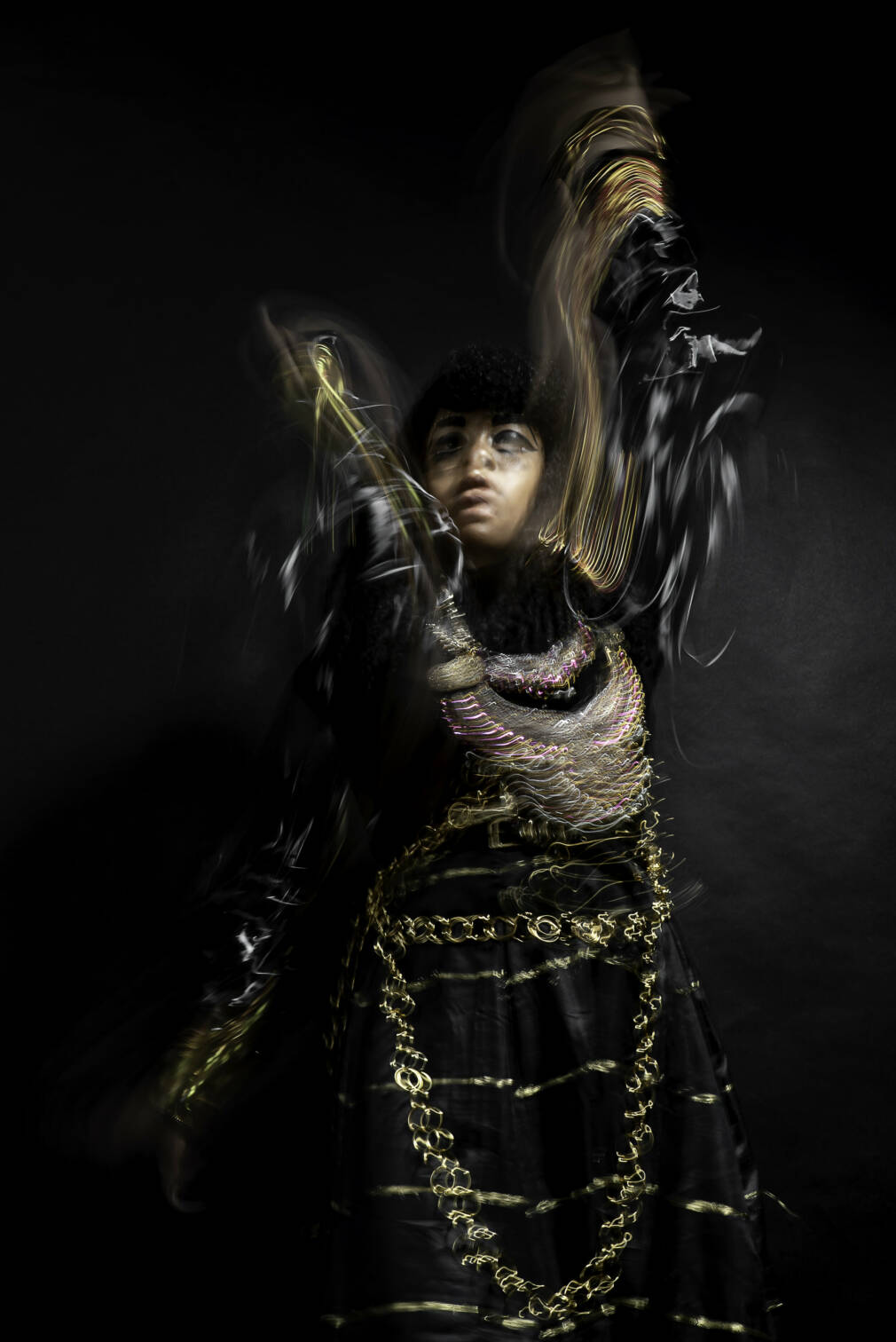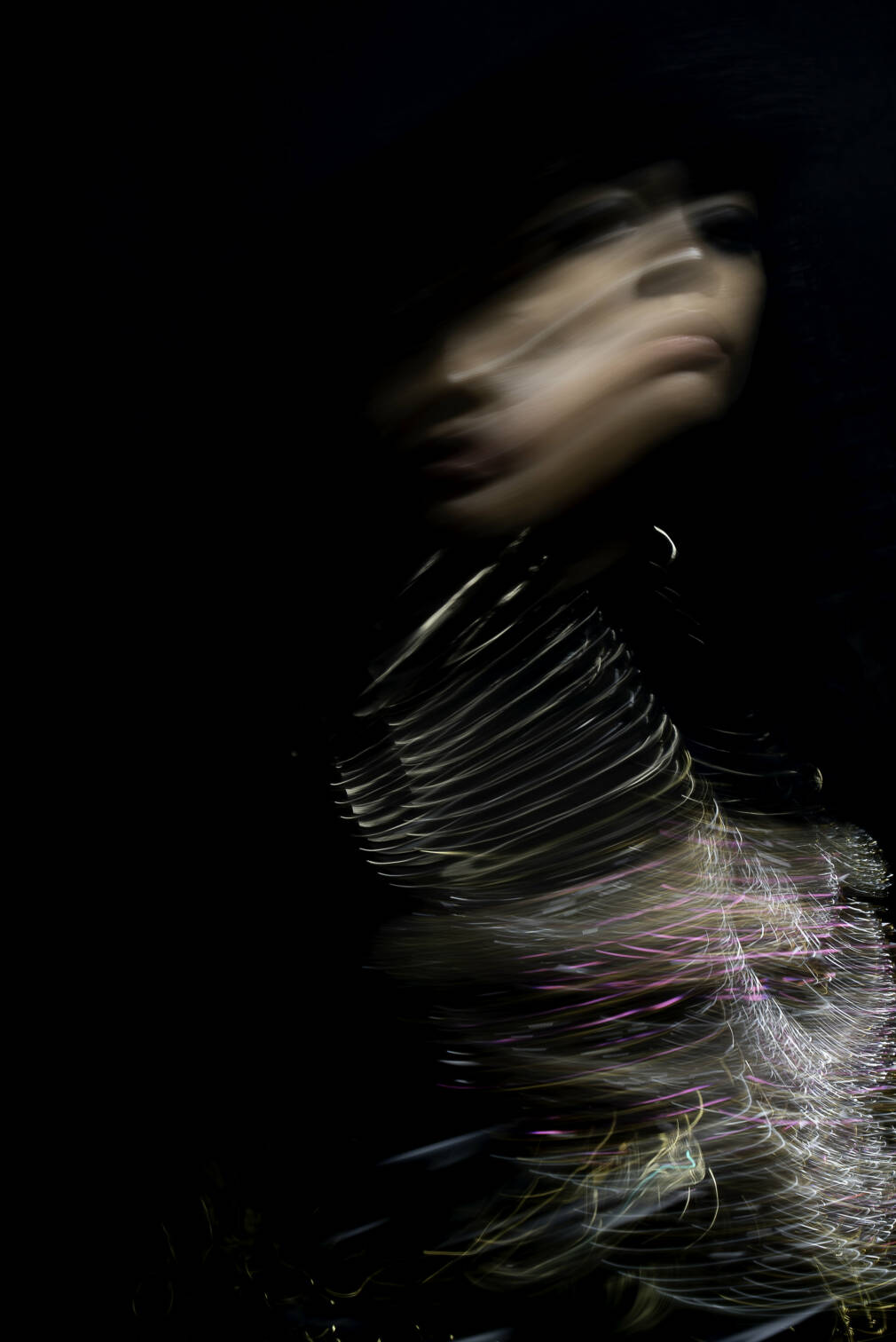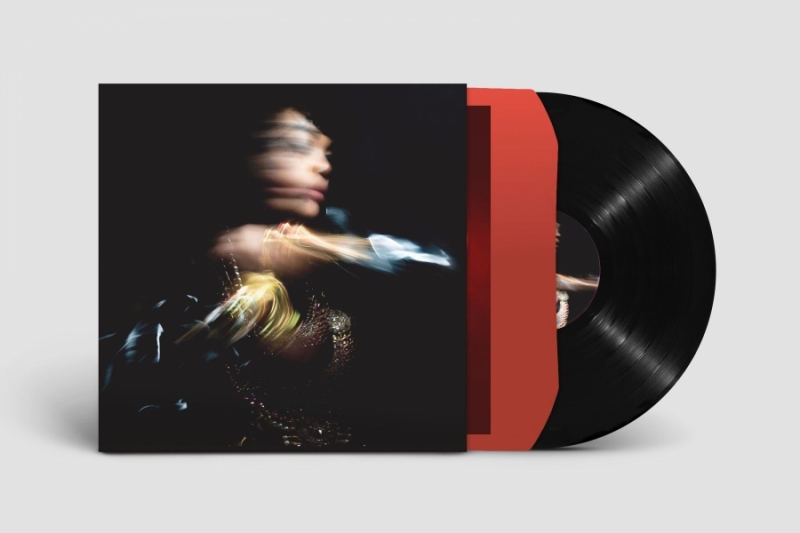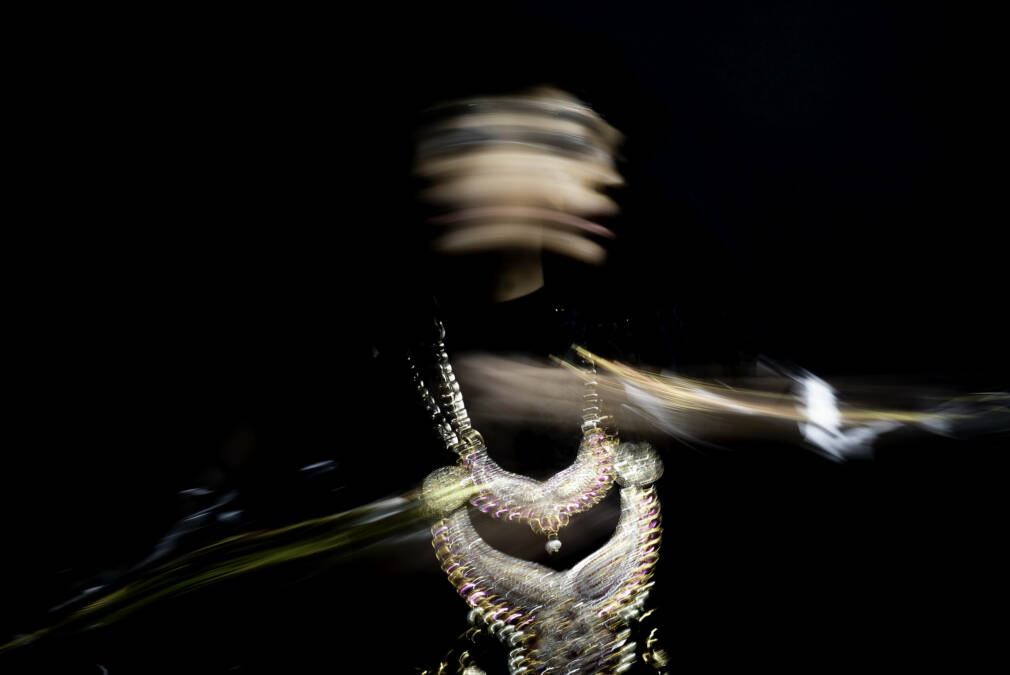Masma Dream World aka Devi Mambouka is overflowing with mystique. Whether it’s the bizarre connections between Rekei and her Gabonese origins, or the embrace of sardonic Butoh dance in contrast to her bubbly personality, it’s difficult to enter Devi’s world in waking life. Instead, it’s best to submit to the mystery, embrace the fantastical, and let the stories of her past weave in and out like dream sequences.
Sitting down with Masma Dream World after her Trans Musicale performance in Rennes, France, the first thing you notice is a blank piercing stare. It’s the kind of look that gives nothing away, more troubling than a smirk or an eyeroll, leaving the interviewer nervous and fumbling, self conscious of offense or missing the editorial mark. But Devi is reassuring, always ending with a smile and a story that makes you feel like you tapped the well of mystery.
Devi Mambouka, daughter to an ambassador, spent the first 12 years of her life in Libreville, Gabon. After her father’s death she moved to the Bronx in New York City, confronting the immigrant experience firsthand. However, it wasn’t long before she broke into music, a concoction of necessity and passion bringing her to DJ in the infamous Lotus club in the meatpacking district. Fast forward to 2020 and Masma Dream World released her debut album “Play at Night” which defies any labels. It sounds shamanistic and esoteric, grounded at times by an underlaid percussion, and evaporating totally into the mystic ether at others.
Again and again there lies serendipity, magic spells and mystery. There’s a Craigslist producer, a Gabonese park ranger with good weed, a terrifying encounter with the Makokou spirit, a pernicious guardian angel, and an unrelenting inner voice that lay the breadcrumbs before Masma Dream World’s artistic path. Our conversation jumped through time and avoided all explanations, having a preference for story over analysis.

What was it like growing up in Gabon?
I think the best way to explain this is, growing up in that house where my father lived, every time I would do my homework, I would see this ghost. It would just go from one entrance of the house, the main entrance, out into the window. And she would just do this. I felt she was female. She had like a feminine energy and, you know, she was just running back and forth.
And I was just tired of that shit, man. So I went to my father. I was like, okay, we’ve got an issue here. I see this like white figure wearing a white veil, just running up and down the house like she owns the place. And my dad said, ‘She’s here to protect us.’ So that stuck with me.
How about moving to New York City from Libreville?
Perception is very interesting because, you know, I was sad and pissed off. I had to leave nature, trees, birds, and Gabon. I grew up in a 13 bedroom mansion surrounded by the forest. It was a very sheltered type of environment, although there was turbulence and this magical aspect, but to leave that was like a culture shock.
And when did you first get into music?
Unfortunately, I didn’t really have many friends. So the people that I could go talk to were the trees. They were always there and I could always speak to them. So for a year I practiced (my sister’s) favorite song to them. And then, one day, they were like, ‘okay, you’re ready. You’re ready to sing that song.’ DJing came along because I was already making mixtapes, and it was kind of a survival thing. Being an immigrant at the time, and you know, my father had passed away, so we had no money and I wanted to go to college.
I wanted to get a chance, but as an immigrant, you can’t really afford it because you have to pay as an international student. So I went to where someone was deejaying and I had asked them, ‘Hey, this is a pretty cool job. How much did you make?’ And they were like, ‘$500 a night.’ I was like, yo, I can pay for college with this. That’s how I started. So it was more like survival.
How did you transition into the music you’re making today?
I remember I just needed to kind of get out of the story in order to find myself. So within that process I remember there was like this amazing rock by the water. I sat on it. And at that moment I started to see these sparkling things around me. I closed my eyes and I heard a voice. I was freaked out. Who the fuck is this? I was in this sleepy town. It was a Mystic, Connecticut. Mystic, Connecticut. Another time I’m sitting reading a book, whatever, and I don’t even think anybody was home and I just hear the radio on. I looked everywhere. There was no radio on. It was just melodies and sounds. And immediately the voice was like, ‘record that shit right now.’ So I started to record it.

[Initial question about Butoh, digressing into story about a twin ceremony as a child in Gabon]
I remember it was a ceremony for twins and we got invited and I was like, ‘Hell yeah, mom, let’s go, please, can I go?’ So I show up and then there’s kids around and everyone is like, ‘do you know what’s going to happen tonight? The Makokou is coming tonight. And the Makokou knows who is being a good kid or a bad kid.’ So I’m already freaking out.
The ceremony starts, and the drum starts to play. There’s a huge fire in the middle of the hut and all the women are singing. The men are playing the drums and all the sudden we hear ruffles in the back and boom, the Makokou walks in. It looks like Big Bird from Sesame Street, but tall, rough and more brown and had this like African mask on. He started to dance and I am like, literally freaking out. All of a sudden I kind of lose the moment and boom, the Makokou hits me. That’s what he does when you’ve been, “bad”, big air quotes. And I get this crazy, feverish kind of intense energy and all the sudden the fire gets redder and redder and blue.
Two seconds later, I looked to the right and then there’s another woman on the floor just rolling herself all over the place, like rolling eyes and speaking a dialect that was not spoken at the ceremony. So the men had to run up the street to ask does so-and-so speak this dialect because we had this woman in trance and we don’t understand what she’s saying.
So then. And then they just start translating what the woman is saying, ‘I want to drink. I want to dance. I’m here to bless you all is good.’ They’re giving her what she wants like cigarettes or feeding her other stuff. And all of a sudden, as fast as she got into trance, she falls and she’s back. And that was maybe my first rave.
There’s one song that stood out to me on the album, “Going Home”…
Yeah, for that I was in Gabon. It was my very first time going back and I’m just sitting there. My brother’s wife, may she rest in peace, made this huge lunch for us. After a while, the eldest of our family says, ‘we’re going to play some music for you.’ They start playing and my other brother, you can hear him on the track, goes, ‘Hey, yo, pull up your phone, record this shit right now.’ And I was like, ‘okay, sure.’ I recorded it. But what is so crazy now, in hindsight, the acoustics were so amazing. I recorded it on my iPhone from this shitty app that’s what we hear on the track.
So there’s an element of your time in Gabon in your music?
Absolutely. It wasn’t really an idea until I went to a peninsula off Libreville and I met the park Rangers there. I hadn’t smoked for a month and I was like, ‘yo, I’m sure the park Rangers got to get some good shit there.’ So I befriended them and they were passing out joints. And that was so cool. We’re just talking about life and everything. It was the first time that I could actually relate to someone and get a bond because it was the first time where I met a guy IN Gabon that wasn’t looking at me as just a woman. So we were just shooting the shit and all of a sudden he looks at me and goes, ‘If you add the music from your people here, you will go far.’ And that’s when it all clicked for me. I’m not here by mistake. I’m just following the breadcrumbs.
Play at Night is still available.

